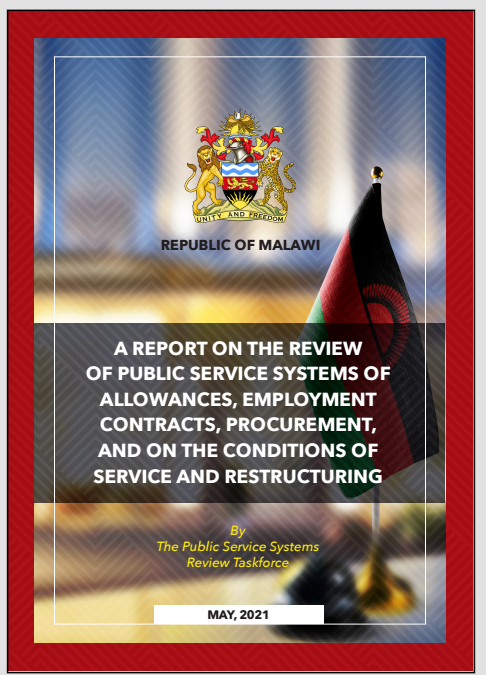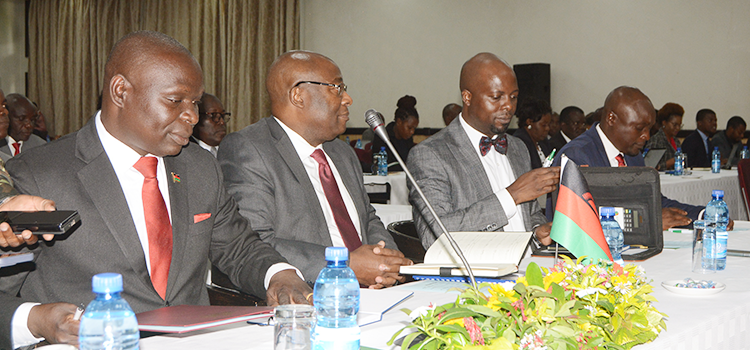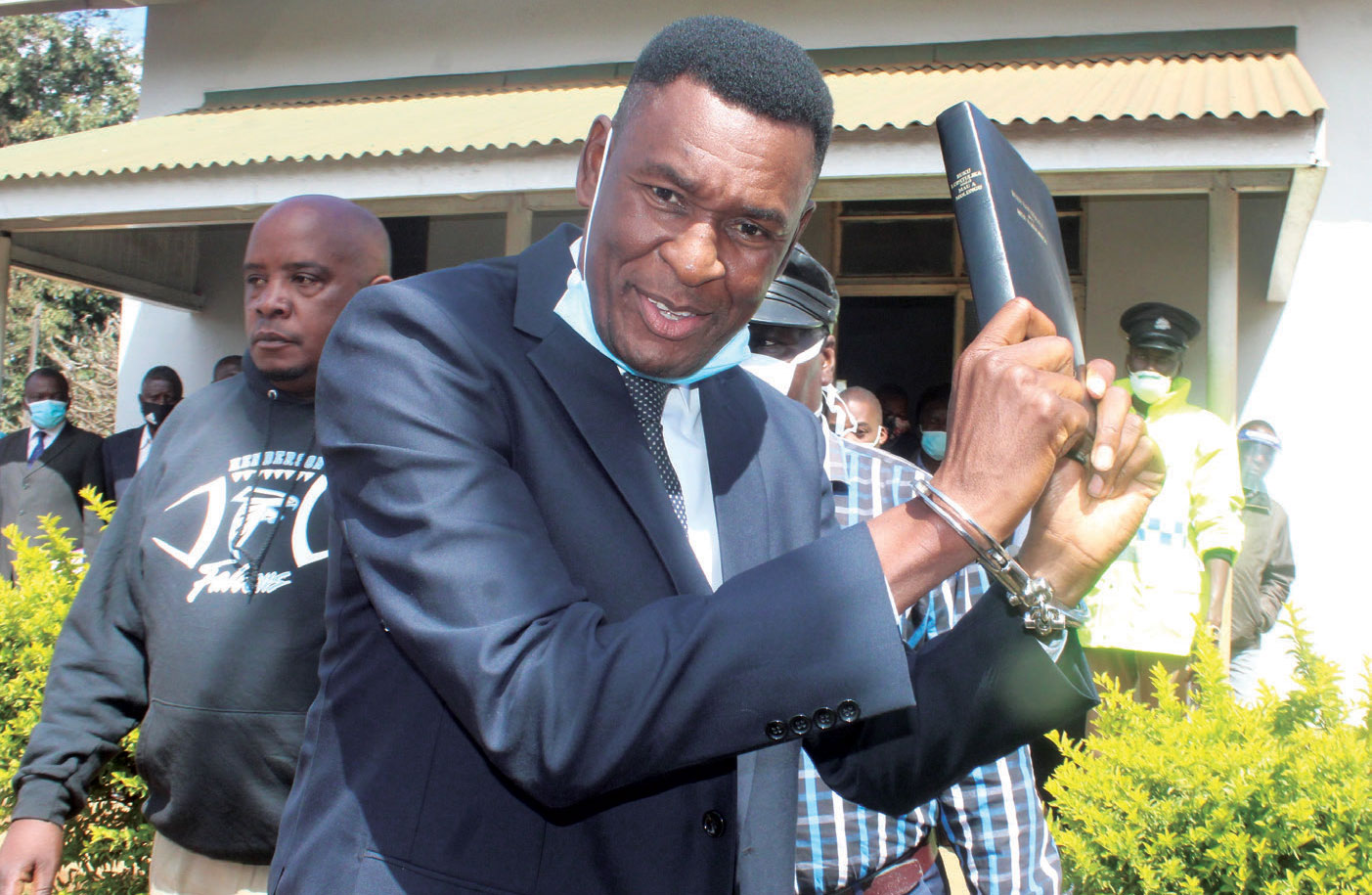- Full Board for Civil Servants During Local Trips
- No Sitting Allowances for MPs
- Cabinet Limit, 21 ministers and five Deputies
- Supreme Court judges limit 9
- Ministers’ Vehicles to be trimmed
BY PIJ REPORTER
The much-anticipated Public Service Reforms report has recommended a significant restructuring of the civil services. This overhaul involves amending laws and implementing administrative measures, encompassing substantial alterations to allowances and privileges for both senior and junior public officials. However, these proposals appear not to have seen the light of day.
On February 19, 2021, President Lazarus Chakwera of Malawi established a taskforce, led by Vice President Saulos Chilima in his role as the Minister responsible for Public Sector Reforms, to examine the nation’s Public Service Systems. Although President Chakwera initially promised to publicly release the taskforce’s findings, the final report remained confidential until its unexpected leak yesterday.
The report’s most radical proposals include the introduction of full-board accommodation for local travel, effective from July 1, 2021, to April 1, 2022. This mandates payments to be made directly to lodges through the Integrated Financial Management Information System (IFMIS), eliminating cash transactions. Additionally, the proposal suggests abolishing meal allowances for officers working within their duty station.
The report advised for the immediate implementation of its recommendations, with a set deadline of April 1, 2022. Key among these are the introduction of uniform standard rates for external travel, and a controlled budget for such expenditures, effective immediately. Additionally, it proposes the elimination of all risk allowances within the government.

The report further recommends that, by July 2021, Parliament should abolish all sitting allowances for MPs and staff members.
Additionally, it recommends capping the number of constituencies in the house at 200. To facilitate this change, the report explicitly proposes an amendment to Section 76(2) of the Constitution, stating, “to provide that the number of constituencies shall not exceed 200.”
The report also advised amending Section 93 of the Constitution to limit the Cabinet to a maximum of 21 ministers, with no more than five deputy ministers. Concurrently, it recommended a revision of Section 105(1) to restrict the number of Supreme Court judges to nine, including the Chief Justice. Additionally, the report recommends an amendment to Chapter IX of the Constitution, introducing the role of Deputy Chief Justice.
The reforms conclude that the current fuel and motor vehicle scheme in the civil services significantly contributes to wastage. It is recommended that, while ministers currently receive three vehicles — a Toyota VX for Ministers, a Toyota TX for Deputy Ministers, a 4×4 for relief, and a saloon for office errands — this should be streamlined. Instead, each Minister and Deputy Minister should receive just one official vehicle, a Toyota Prado TXL, with an additional saloon vehicle designated for relief and office errands.
“The parastatal sector has seventy-one (71) institutions, each headed by a Chief Executive Officer (CEO) who is entitled to any motor vehicle with engine capacity of not more than 3500cc (usually Toyota Prado TXL), and monthly fuel allowance ranging from 500 litres to 700 litres. Each parastatal has an average of four directors, and each is entitled to any motor vehicle with engine capacity of not more than 3000cc (usually Toyota Fortuner) and monthly fuel ranging from 400 litres to 500 litres,” reads part of the report.
Furthermore, the report suggests an immediate amendment to the Public Finance Management Act. This amendment would empower the Secretary to the Treasury to surcharge public officers responsible for the loss of public funds and property, thereby attaching personal liability for the recovery of these losses. It also proposes the introduction of performance appraisals in government.
Too Radical to Implement?
A close analysis of the report’s findings, recommendations, and recommended timelines reveals that the majority of its suggestions remain unimplemented. Several factors may contribute to this delay. Some recommendations might be perceived as too radical for swift implementation, potentially influenced by political calculations. Additionally, a lack of political will and the typical bureaucratic delays could be further hindering progress.
Most of the report’s radical proposals seem to remain unaddressed. While the government has initiated some recommended reforms, full implementation is still pending. The report covers crucial aspects such as the review and recommendations on performance management, promotions, the welfare of civil servants, discipline, and the code of ethics.
“The Taskforce found endemic abuses of allowances, procurement, and employment contracts across the public sector, and that most control measures for curbing “wastage and abuse” of tax-payers money have collapsed,” reads the report.
Reforming the Civil Services
The report proposes numerous legal reforms aimed at improving the civil service’s functionality. These include amending the Constitution to establish the Public Service Commission as an independent body outside the executive, overseeing public service management and reporting directly to the Head of State. Additionally, it suggests amending Section 92(4) of the Constitution to introduce the position of Secretary to the President and Cabinet, as opposed to the current role of Secretary to the Cabinet.

The report includes the proposal to introduce minister scorecards, effective June 1, 2022, and the immediate appointment of an Auditor General. These recommendations are among the few that have been implemented so far.
The report advocates for the establishment of a Directorate of Skills Development within the Public Service Commission, with the management of the Internship Programme as one of its primary responsibilities. Additionally, it recommends that the Technical Education and Vocational Training Authority (TEVETA) no longer function as an independent entity but be integrated into the Ministry of Education.




.jpg)

.jpg)


